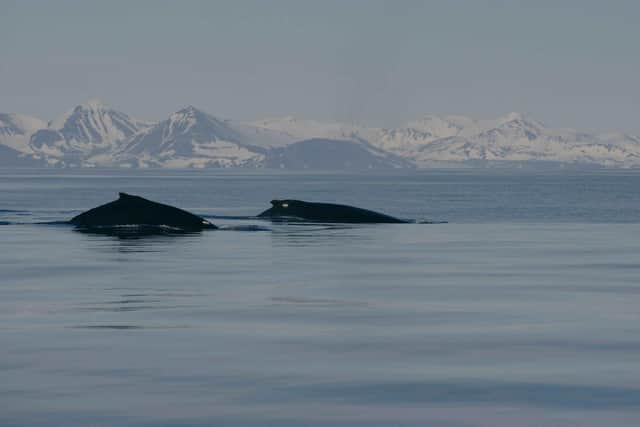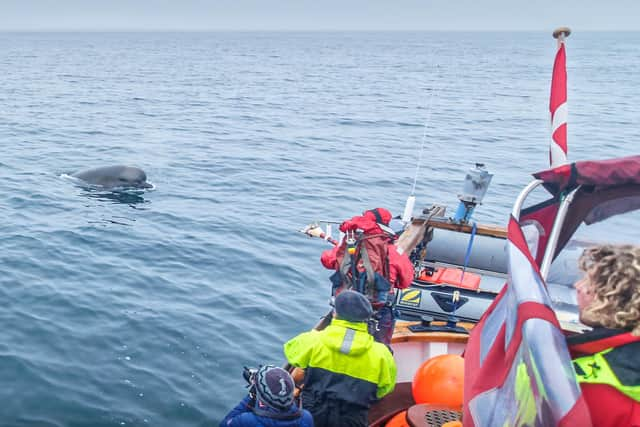Whales and dolphins stop eating to escape man-made underwater noise, Scottish-led research reveals
Research by a team of specialists from across Europe shows underwater noise pollution from human activities is picked up by whales in a similar way to how they sense natural predators, explaining why some species are particularly sensitive to this kind of disturbance.
The report, by a team of behavioural ecology experts – including study leaders Professor Patrick Miller and Dr Saana Isojunno, from the Sea Mammal Research Unit at the University of St Andrews – found whales, dolphins and porpoises, known as cetaceans, respond to artificial sounds in a similar way they have evolved to respond to natural predators like killer whales.
Advertisement
Hide AdAdvertisement
Hide AdWhile some creatures may be able to fight or flee from predators when they think they are under attack, subsea disturbance created by people is also causing them to stop feeding.


This can impact their health and leave them more vulnerable to threats, the researchers conclude.
Experiments carried out by the research team found that navy sonar caused cessation of foraging in all four species of whale they studied – beaked northern bottlenose, humpback, sperm and long-finned pilot whales – which all rely on acoustic signals to assess the danger from predators and to locate their own food.
“The fact that whales and dolphins can be negatively affected by sonar sounds came to the attention of the public due to high-profile stranding events in which large numbers of whales stranded in association with military sonar activities,” Prof Miller said.


The study investigated how the mammals – tagged with temporary transmitters – responded to naval sonar signals and recordings of sounds made by killer whales, a top ocean predator.
It found the amount of time spent foraging for food decreased at around the same rate for each type of noise, although data varies between species – beaked northern bottlenose whales stopped hunting for food entirely while sperm whales halved their foraging time.
“As human activities impact virtually every animal habitat on the planet, identifying species at risk from disturbance is a priority,” Prof Miller said.
“In our study, matched responses of naval sonar and predatory killer whale sound playbacks indicate that whales who are both predators and prey but rely on hearing to both find food and detect dangers have not adjusted their threat response by learning to tell the difference between noise that does not represent a predation risk from that which does.
Advertisement
Hide AdAdvertisement
Hide Ad“Effectively they are having to choose life over dinner when they hear a potential threat in the sea.”
Similar behaviour has been reported in response to ice-breaker noise and air guns used in oil and gas exploration.
He says the findings raise concerns for the world’s most northerly cetaceans, with both killer whales and humans increasingly able to access Arctic waters as sea ice continues to disappear due to climate change.
He added: “Our findings show that these Arctic marine mammals face a looming double-whammy impact of increased number of real predators as well as perceived threats from increasing human noise under the sea.”
A message from the Editor:
Thank you for reading this article. We’re more reliant on your support than ever as the shift in consumer habits brought about by coronavirus impacts our advertisers.
If you haven’t already, please consider supporting our trusted, fact-checked journalism by taking out a digital subscription.
Comments
Want to join the conversation? Please or to comment on this article.
